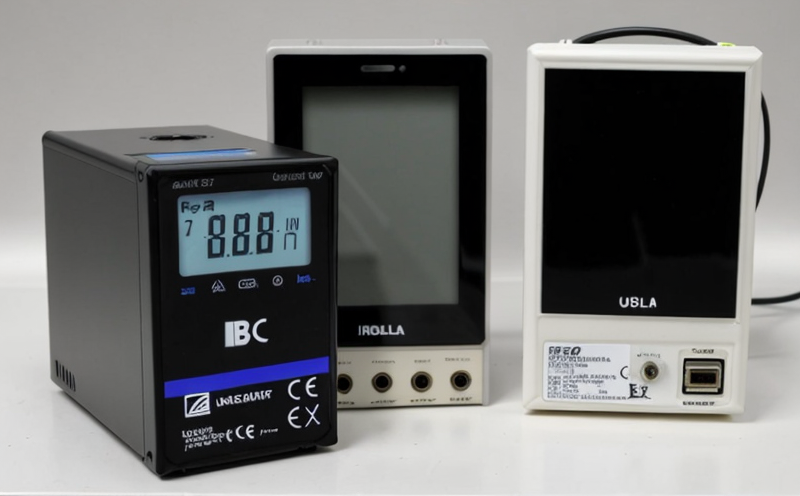JIS C8511 Consumer Electronics Zinc Carbon Primary Battery Testing
The JIS C8511 standard is a crucial document in Japan that specifies the requirements and test methods for zinc carbon primary batteries used in consumer electronics. This service ensures compliance with this standard, which is essential for manufacturers aiming to meet market entry criteria in Japan or comply with regulatory standards.
Consumer electronics require reliable power sources that can deliver consistent performance under various conditions. JIS C8511 tests these batteries by evaluating their electrical characteristics, durability, and safety features. The testing process involves a series of rigorous procedures designed to simulate real-world usage scenarios. This includes measuring open-circuit voltage, internal resistance, capacity retention over time, and the effect of storage on battery performance.
The scope of JIS C8511 goes beyond mere functionality; it also emphasizes safety considerations. By adhering to this standard, manufacturers can ensure that their batteries meet stringent requirements for voltage stability during discharge, temperature tolerance, and resistance against moisture ingress. These tests are critical in preventing potential hazards such as short circuits, overheating, or explosions.
Our laboratory uses state-of-the-art equipment and follows the latest versions of JIS C8511 to provide accurate results. We employ experienced technicians who understand the nuances of this standard and can interpret test outcomes effectively. Our facility is equipped with advanced testing chambers capable of replicating different environmental conditions, ensuring comprehensive evaluation.
Compliance with JIS C8511 not only enhances product quality but also builds trust among consumers. It demonstrates a commitment to delivering dependable products that meet international standards. For companies operating in Japan or targeting the Japanese market, achieving compliance through this testing service is indispensable. Our rigorous approach guarantees accurate and reliable results, helping clients stay ahead of competitors.
In summary, JIS C8511 Consumer Electronics Zinc Carbon Primary Battery Testing ensures product reliability, safety, and regulatory adherence. By adhering to this standard, manufacturers can confidently introduce their products into the Japanese market or ensure compliance with international standards.
Customer Impact and Satisfaction
The testing service provided by our laboratory has a direct impact on customer satisfaction in several ways:
- Enhanced Product Reliability: By ensuring that batteries meet the stringent requirements outlined in JIS C8511, we help manufacturers produce reliable products. This builds trust with customers and enhances brand reputation.
- Avoidance of Regulatory Issues: Compliance with international standards like JIS C8511 helps prevent legal disputes and potential fines associated with non-compliance.
- Improved Market Access: Meeting these standards opens doors to the Japanese market, which is one of the world's largest electronics markets. This can lead to increased sales opportunities for manufacturers.
We also strive to provide exceptional service by offering prompt turnaround times and clear communication regarding test results and recommendations. Our goal is not only to meet but exceed customer expectations, ensuring that they receive accurate and actionable insights from our testing.
International Acceptance and Recognition
The JIS C8511 standard enjoys significant international recognition due to its rigorous approach to ensuring product reliability and safety. Many countries recognize the importance of this standard, especially in regions where consumer electronics are heavily regulated or where manufacturers target specific markets.
- Japan: The native land for JIS C8511, this standard is widely used by local manufacturers and importers to ensure compliance with domestic regulations.
- Asia-Pacific Region: Countries like South Korea, Taiwan, Singapore, and others have adopted or aligned their standards with JIS C8511 due to its comprehensive approach to battery testing.
- Other Regions: While not as widespread as in the Asia-Pacific region, some European countries and North American entities recognize the relevance of this standard, particularly for products destined for the Japanese market.
The acceptance of JIS C8511 extends beyond just compliance with regulations. It also reflects a commitment to quality that is valued globally. As such, achieving compliance through our testing service can provide manufacturers with a competitive edge in these markets.
Use Cases and Application Examples
The applications of JIS C8511 Consumer Electronics Zinc Carbon Primary Battery Testing are diverse and span multiple sectors:
- Consumer Electronics Manufacturers: This testing is crucial for companies like Sony, Panasonic, and others who manufacture batteries used in portable devices such as smartphones, tablets, and laptops.
- OEM/ODM Partners: Original Equipment Manufacturers (OEMs) and Original Design Manufacturers (ODMs) often require rigorous testing to ensure the quality of their products before they are sold under various brand names.
- R&D Departments: Research & Development teams use this service to innovate and improve battery designs, ensuring that new models meet or exceed existing standards.
- Procurement Teams: Procurement specialists rely on these tests to verify the quality of batteries sourced from suppliers before finalizing contracts.
In addition to these broad applications, JIS C8511 is also used in specific scenarios where reliability and safety are paramount. For instance, it ensures that batteries used in medical devices or IoT gadgets meet stringent requirements for continuous performance.





